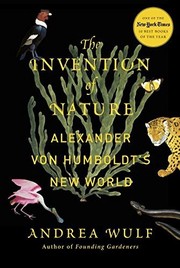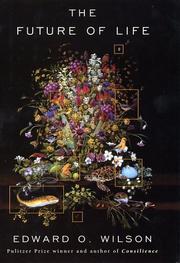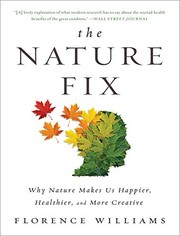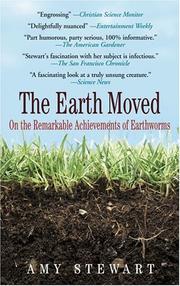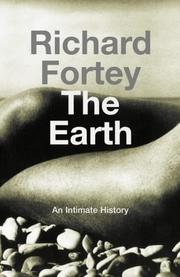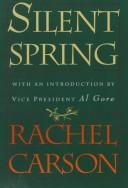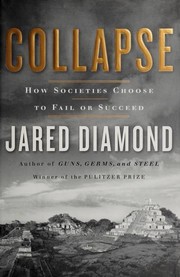Are you looking for the best books about earth to expand your knowledge of our planet? Look no further! Whether you’re a nature enthusiast, a science buff, or just curious about the world around you, these 20 books on earth will take you on a fascinating journey through the wonders of our planet. From geology to ecology, climate change to biodiversity, these books offer insightful and thought-provoking perspectives on the Earth’s natural wonders. Get ready to dive into the depths of our planet with these captivating earth books!
Contents
- 1 20 Best Books About Earth
- 2 The Uninhabitable Earth: Life After Warming
- 3 The Sixth Extinction: An Unnatural History
- 4 The Hidden Life of Trees: What They Feel, How They Communicate—Discoveries from a Secret World
- 5 Sapiens: A Brief History of Humankind
- 6 The Water Will Come: Rising Seas, Sinking Cities, and the Remaking of the Civilized World
- 7 The Invention of Nature: Alexander von Humboldt’s New World
- 8 The World Without Us
- 9 The Future of Life
- 10 The Nature Fix: Why Nature Makes Us Happier, Healthier, and More Creative
- 11 The Hidden Half of Nature: The Microbial Roots of Life and Health
- 12 The Ends of the World: Volcanic Apocalypses, Lethal Oceans, and Our Quest to Understand Earth’s Past Mass Extinctions
- 13 The Weather Machine: A Journey Inside the Forecast
- 14 The Earth Moved: On the Remarkable Achievements of Earthworms
- 15 The Earth: An Intimate History
- 16 The Hidden Life of Trees: What They Feel, How They Communicate
- 17 The Omnivore’s Dilemma: A Natural History of Four Meals
- 18 Silent Spring
- 19 Collapse: How Societies Choose to Fail or Succeed
- 20 The Soil Will Save Us: How Scientists, Farmers, and Foodies Are Healing the Soil to Save the Planet
- 21 The Big Ones: How Natural Disasters Have Shaped Us (and What We Can Do About Them)
- 22 Conclusion
- 23
- 24 Climbing Mountains Books: A Curated 2024 Updated List
- 25 Best Books About Infectious Disease. 2024 Edition
- 26 Discover the Best Living Off The Grid Books in the 2024 Updated Edition
20 Best Books About Earth
The Uninhabitable Earth: Life After Warming
by David Wallace-Wells
The Uninhabitable Earth: Life After Warming by David Wallace-Wells is a chilling and urgent exploration of the catastrophic consequences of climate change. In this eye-opening book about earth, Wallace-Wells paints a vivid picture of the future we may face if we continue on our current trajectory of environmental destruction. Through a combination of scientific research, interviews, and on-the-ground reporting, the author reveals the potential impact of rising temperatures on our planet, from extreme weather events to food and water scarcity. This book on earth serves as a wake-up call, compelling readers to confront the reality of our warming world and the urgent need for action. The Uninhabitable Earth is a sobering but essential read for anyone concerned about the future of our planet.
The Sixth Extinction: An Unnatural History
by Elizabeth Kolbert
The Sixth Extinction: An Unnatural History by Elizabeth Kolbert is a captivating book about the fragility of life on our planet. Kolbert takes readers on a journey through time, exploring the five previous mass extinctions and the catastrophic impact of human activity on the earth. Through vivid storytelling and scientific research, she reveals the alarming rate at which species are disappearing, making a compelling case for the ongoing sixth extinction. This earth book is a wake-up call, urging readers to confront the reality of our role in the destruction of the natural world. It is a powerful and thought-provoking exploration of the interconnectedness of life on earth and the urgent need for conservation and preservation. The Sixth Extinction is essential reading for anyone interested in understanding the current state of our planet and the future of life on earth.
The Hidden Life of Trees: What They Feel, How They Communicate—Discoveries from a Secret World
by Peter Wohlleben
The Hidden Life of Trees: What They Feel, How They Communicate—Discoveries from a Secret World by Peter Wohlleben is a fascinating earth book that uncovers the intricate and complex world of trees. Wohlleben, a forester, shares his deep understanding and insights into the lives of trees, revealing their ability to communicate, feel, and support each other in a network hidden from human eyes. Through captivating storytelling, he presents scientific discoveries that challenge our perception of trees as passive and solitary beings, instead showing them as social, interconnected, and capable of complex behaviors. This eye-opening book about earth offers a new perspective on the natural world, inviting readers to appreciate and respect the intelligence and resilience of trees. The Hidden Life of Trees is a must-read for anyone curious about the wonders of nature and the interconnectedness of all life on our planet.
Sapiens: A Brief History of Humankind
by Yuval Noah Harari
Sapiens: A Brief History of Humankind by Yuval Noah Harari is a captivating book about earth that takes readers on a thrilling journey through the history of human civilization. Harari explores the evolution of Homo sapiens from their humble beginnings to the present day, covering everything from the Cognitive Revolution to the Agricultural Revolution and the rise of empires. With a thought-provoking and engaging writing style, the author delves into how humans have shaped the world and the impact of their actions on the earth book as a whole. This book offers a fascinating insight into the development of human societies and the forces that have shaped our modern world, making it a must-read for anyone interested in history, anthropology, or the human experience.
The Water Will Come: Rising Seas, Sinking Cities, and the Remaking of the Civilized World
by Jeff Goodell
The Water Will Come by Jeff Goodell is a compelling non-fiction book about the impact of rising sea levels on the world’s coastal cities. Goodell takes readers on a journey to the frontlines of the battle against sea level rise, exploring how it is reshaping the very fabric of our civilization. Through vivid storytelling and in-depth research, the author paints a vivid picture of the imminent threat posed by climate change and its potential to upend the world as we know it. This earth book is a wake-up call that urges us to confront the harsh reality of our changing planet and take action to mitigate the devastating effects of rising seas. Goodell’s exploration of this pressing issue makes The Water Will Come a must-read for anyone concerned about the future of our planet.
The Invention of Nature: Alexander von Humboldt’s New World
by Andrea Wulf
The Invention of Nature: Alexander von Humboldt’s New World by Andrea Wulf is a captivating earth book that delves into the life and discoveries of the visionary naturalist Alexander von Humboldt. Wulf vividly portrays Humboldt’s exploration of South America and his revolutionary ideas about the interconnectedness of nature. Through meticulous research and engaging storytelling, the book brings to life Humboldt’s groundbreaking insights into the relationships between climate, geography, and ecosystems. It showcases Humboldt’s pioneering contributions to the understanding of the natural world and his enduring influence on environmental science. This book about earth not only celebrates the remarkable achievements of a forgotten scientific hero but also inspires a renewed appreciation for the beauty and complexity of the natural world.
The World Without Us
by Alan Weisman
The World Without Us by Alan Weisman is a fascinating book about the planet we call home. This thought-provoking exploration takes readers on a journey through time, envisioning a world without human presence. Weisman delves into the impact of human activity on the environment and how the Earth would reclaim its natural state if humans were to disappear. Through engaging narratives and scientific insights, the book paints a vivid picture of a post-human Earth, showcasing the resilience of nature and the lasting imprint of human civilization. With a blend of environmental science, history, and imagination, The World Without Us is a captivating and eye-opening read that prompts reflection on our relationship with the natural world. It’s a must-read for anyone interested in the future of our planet and our place within it.
The Future of Life
by Edward O. Wilson
The Future of Life by Edward O. Wilson is a compelling book about the future of our planet. Wilson, a renowned biologist, delves into the urgent need for conservation and preservation of the natural world. The book presents a thought-provoking exploration of the diversity of life on Earth and the threats it faces from human activities. Wilson discusses the importance of biodiversity and the delicate balance of ecosystems, highlighting the impact of human actions on the planet. Through his insightful writing, Wilson emphasizes the necessity of sustainable living and the protection of Earth’s precious resources. This book on Earth serves as a wake-up call, urging readers to take action to safeguard the future of life on our planet. Wilson’s passionate plea for environmental stewardship makes this book an essential read for anyone concerned about the future of our planet.
The Nature Fix: Why Nature Makes Us Happier, Healthier, and More Creative
by Florence Williams
The Nature Fix by Florence Williams is a fascinating book on earth that explores the powerful impact of nature on our well-being. Through engaging storytelling and scientific research, Williams delves into the ways in which spending time in nature can make us happier, healthier, and more creative. She takes readers on a journey around the world, from the forests of Japan to the rivers of Scotland, to uncover the restorative benefits of being in nature. The book offers a compelling insight into the profound connection between humans and the natural world, shedding light on the ways in which our modern, urbanized lives have distanced us from the healing powers of the earth. The Nature Fix is a must-read for anyone seeking to understand the profound effects of nature on our physical and mental well-being.
The Hidden Half of Nature: The Microbial Roots of Life and Health
by David R. Montgomery and Anne Biklé
The Hidden Half of Nature: The Microbial Roots of Life and Health by David R. Montgomery and Anne Biklé is a fascinating book on earth that explores the intricate relationship between microbes and the natural world. Through engaging storytelling and scientific research, the authors uncover the profound impact that microbes have on the health of the planet and all living organisms. From the soil beneath our feet to the human gut, this earth book reveals the vital role that microbes play in sustaining life and maintaining a healthy environment. Readers will gain a new appreciation for the hidden world of microbes and how they shape the earth’s ecosystems. This book about earth is a captivating journey into the microbial world, shedding light on the interconnectedness of all living things and the essential role of microbes in maintaining a balanced and thriving planet.
The Ends of the World: Volcanic Apocalypses, Lethal Oceans, and Our Quest to Understand Earth’s Past Mass Extinctions
by Peter Brannen
The Ends of the World by Peter Brannen is a fascinating book on earth’s past mass extinctions. Brannen takes readers on a journey through volcanic apocalypses, lethal oceans, and the quest to understand the earth’s tumultuous history. Through engaging storytelling and meticulous research, the author provides insight into the catastrophic events that have shaped the planet over millions of years. From the Permian extinction to the asteroid impact that wiped out the dinosaurs, Brannen delves into the science behind these earth-shattering events and the lessons they hold for the future. This earth book offers a gripping exploration of the forces that have shaped our planet and the fragility of life on earth. The Ends of the World is a must-read for anyone interested in the history of our planet and the potential threats it may face in the future.
The Weather Machine: A Journey Inside the Forecast
by Andrew Blum
The Weather Machine: A Journey Inside the Forecast by Andrew Blum is an illuminating exploration of the intricate system that brings us our weather forecasts. Blum takes readers on a captivating journey into the heart of the global network of weather prediction, revealing the remarkable technology and human ingenuity that goes into forecasting the weather. With vivid storytelling and insightful research, the book delves into the history, science, and politics of weather prediction, offering a fascinating look at how our understanding of the planet’s atmosphere has evolved over time. Whether you’re a weather enthusiast or simply curious about the forces that shape our world, this book about earth is sure to leave you with a deeper appreciation for the complex and essential role that forecasting plays in our lives.
The Earth Moved: On the Remarkable Achievements of Earthworms
by Amy Stewart
The Earth Moved: On the Remarkable Achievements of Earthworms by Amy Stewart is a fascinating book about the incredible impact of earthworms on the soil. Stewart delves into the world beneath our feet, revealing the vital role these tiny creatures play in ecosystems and agriculture. She explores their burrowing and digestive processes, shedding light on how they contribute to soil fertility and structure. Through engaging storytelling and meticulous research, Stewart captures the wonders of these often overlooked organisms. Whether you’re a gardening enthusiast or simply curious about the world beneath our feet, The Earth Moved is a captivating journey into the hidden and essential world of earthworms.
The Earth: An Intimate History
by Richard Fortey
The Earth: An Intimate History by Richard Fortey is a captivating exploration of our planet’s fascinating past. This mesmerizing book delves into the intricate and dramatic history of the Earth, revealing the incredible forces that have shaped our world over millions of years. Fortey takes readers on a journey through time, uncovering the stories hidden within rocks, fossils, and landscapes. From the explosive birth of the Earth to the evolution of life and the catastrophic events that have shaped its surface, this book provides a deep and intimate understanding of our planet’s history. With vivid descriptions and engaging storytelling, Fortey brings the Earth to life, making this a must-read for anyone curious about the incredible story of our home planet.
The Hidden Life of Trees: What They Feel, How They Communicate
by Peter Wohlleben
The Hidden Life of Trees: What They Feel, How They Communicate by Peter Wohlleben is a fascinating book about the earth that explores the interconnectedness and intelligence of trees. Wohlleben, a forester, shares his deep understanding of the natural world and reveals the complex social networks and communication systems that exist within forests. Through vivid storytelling and scientific research, he uncovers how trees support and communicate with each other, and even feel pain and emotions. This eye-opening earth book will change the way you see the natural world, as it offers a new perspective on the intelligence and sensitivity of trees. Whether you’re a nature enthusiast or simply curious about the wonders of the natural world, this book will leave you with a deeper appreciation for the hidden life that thrives within the forests.
The Omnivore’s Dilemma: A Natural History of Four Meals
by Michael Pollan
The Omnivore’s Dilemma: A Natural History of Four Meals by Michael Pollan is a captivating earth book that delves into the complex and thought-provoking relationship between humans and the food we consume. Pollan takes readers on a journey through the modern food industry, exploring the origins of our meals and the impact they have on the earth. By examining the processes of industrial farming, organic agriculture, and foraging, Pollan raises important questions about the environmental, ethical, and health implications of our food choices. Through his engaging storytelling and in-depth research, he challenges readers to consider the consequences of their dietary decisions and encourages a deeper understanding of our connection to the earth. The Omnivore’s Dilemma is a must-read for anyone seeking a greater understanding of the earth and our role in its ecosystem.
Silent Spring
by Rachel Carson
Silent Spring by Rachel Carson is a groundbreaking book on earth that sparked the environmental movement. Published in 1962, the book exposed the devastating effects of pesticides on the environment, particularly on birds and other wildlife. Carson’s powerful and meticulously researched writing raised awareness about the dangers of chemical pollution and its impact on the delicate balance of nature. She warned of a “silent spring” where the absence of birdsong would signify the silent death of the natural world. Carson’s passionate advocacy for the earth and its inhabitants led to significant changes in environmental policy and regulations. Silent Spring remains a timeless and influential earth book, inspiring readers to take action and protect the planet for future generations.
Collapse: How Societies Choose to Fail or Succeed
by Jared Diamond
Collapse: How Societies Choose to Fail or Succeed by Jared Diamond is a thought-provoking book on Earth that explores the factors leading to the collapse of past civilizations and the potential risks faced by modern societies. Diamond examines the environmental, political, and social forces that have contributed to the downfall of societies throughout history, from the ancient Mayans to the modern-day societies. Through compelling case studies and thorough research, the author offers valuable insights into the choices that societies make and the consequences of those decisions. With a focus on sustainability and the impact of human activity on the planet, this Earth book serves as a wake-up call for the challenges facing our world today. Collapse is a must-read for anyone interested in understanding the complex relationship between societies and the environment.
The Soil Will Save Us: How Scientists, Farmers, and Foodies Are Healing the Soil to Save the Planet
by Kristin Ohlson
The Soil Will Save Us: How Scientists, Farmers, and Foodies Are Healing the Soil to Save the Planet by Kristin Ohlson is an insightful and inspiring book about the potential of soil to combat climate change and restore the health of the planet. Ohlson explores the groundbreaking research and innovative practices of scientists, farmers, and food enthusiasts who are harnessing the power of soil to sequester carbon, improve biodiversity, and promote sustainable agriculture. Through engaging storytelling and compelling evidence, the book demonstrates how healthy soil is essential for mitigating the effects of climate change and creating a more resilient and abundant food system. Whether you’re a farmer, environmentalist, or simply a concerned citizen, this earth book offers a compelling argument for the vital role that soil plays in the health of our planet.
The Big Ones: How Natural Disasters Have Shaped Us (and What We Can Do About Them)
by Lucy Jones
The Big Ones: How Natural Disasters Have Shaped Us (and What We Can Do About Them) by Lucy Jones is a compelling book about earth that delves into the impact of natural disasters on human history and society. Jones, a renowned seismologist, explores the ways in which earthquakes, tsunamis, and other catastrophes have shaped human civilization and our understanding of the world around us. With a mix of scientific insight and historical anecdotes, Jones provides a fascinating look at the ways in which natural disasters have influenced culture, politics, and the way we interact with the earth. She also offers valuable insights into how we can better prepare for and respond to future disasters. Whether you’re a science enthusiast or simply curious about the forces that shape our world, this book on earth is a must-read.
Conclusion
Exploring the wonders of our planet through literature is a fascinating journey. These 20 best books about Earth offer a diverse range of perspectives and insights into the natural world. From environmental science to poetic reflections, these books provide a deeper understanding and appreciation for our planet. Whether you’re interested in geology, ecology, or simply marveling at the beauty of nature, these books are sure to inspire and educate. Dive into the pages of these captivating reads and embark on a literary exploration of the earth’s wonders.
Which Earth book is best?
The best book on Earth can vary with personal preference, but three widely recommended titles are:
- The Uninhabitable Earth: Life After Warming by David Wallace-Wells,
- The Sixth Extinction: An Unnatural History by Elizabeth Kolbert,
- The Hidden Life of Trees: What They Feel, How They Communicate—Discoveries from a Secret World by Peter Wohlleben.
Each offers valuable insights and could be a great starting point.
What are the best books to learn about Earth?
For those looking to learn about Earth, there is a wealth of literature that can provide a comprehensive understanding of the subject. Some of the most highly recommended books include:
- The Uninhabitable Earth: Life After Warming by David Wallace-Wells,
- The Sixth Extinction: An Unnatural History by Elizabeth Kolbert,
- The Hidden Life of Trees: What They Feel, How They Communicate—Discoveries from a Secret World by Peter Wohlleben,
- Sapiens: A Brief History of Humankind by Yuval Noah Harari,
- The Water Will Come: Rising Seas, Sinking Cities, and the Remaking of the Civilized World by Jeff Goodell,
- The Invention of Nature: Alexander von Humboldt’s New World by Andrea Wulf,
- The World Without Us by Alan Weisman,
- The Future of Life by Edward O. Wilson,
- The Nature Fix: Why Nature Makes Us Happier, Healthier, and More Creative by Florence Williams,
- The Hidden Half of Nature: The Microbial Roots of Life and Health by David R. Montgomery and Anne Biklé
These books offer a range of perspectives on Earth, covering various aspects and approaches to the subject.
What are the best books on Earth?
The best books on Earth include:
- The Uninhabitable Earth: Life After Warming by David Wallace-Wells,
- The Sixth Extinction: An Unnatural History by Elizabeth Kolbert,
- The Ends of the World: Volcanic Apocalypses, Lethal Oceans, and Our Quest to Understand Earth’s Past Mass Extinctions by Peter Brannen,
- The Weather Machine: A Journey Inside the Forecast by Andrew Blum,
- The Future of Life by Edward O. Wilson,
- The Invention of Nature: Alexander von Humboldt’s New World by Andrea Wulf.
Each offers unique insights into the subject. While these books on the topic of Earth are highly regarded, it’s important to note that any list of ‘best’ books is subjective and reflects a range of opinions.
What are the best Earth books of all time?
Choosing the best Earth books of all time can vary depending on who you ask, but seven titles that are often celebrated include
- The Uninhabitable Earth: Life After Warming by David Wallace-Wells,
- The Sixth Extinction: An Unnatural History by Elizabeth Kolbert,
- The Water Will Come: Rising Seas, Sinking Cities, and the Remaking of the Civilized World by Jeff Goodell,
- The Future of Life by Edward O. Wilson,
- The Hidden Half of Nature: The Microbial Roots of Life and Health by David R. Montgomery and Anne Biklé,
- The Weather Machine: A Journey Inside the Forecast by Andrew Blum,
- and The Ends of the World: Volcanic Apocalypses, Lethal Oceans, and Our Quest to Understand Earth’s Past Mass Extinctions by Peter Brannen.
Each of these books has made a significant impact in the field of Earth and continues to be influential today.






